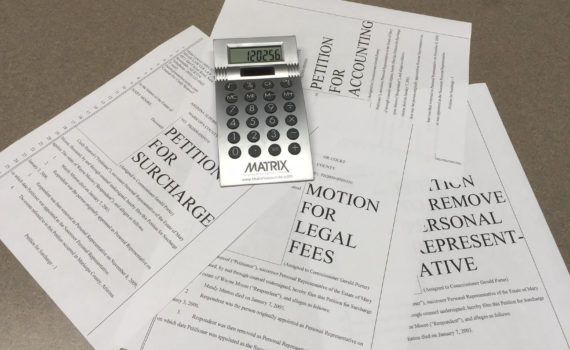
Do I Need a Lawyer for an Informal Probate?
After a loved one dies, one of the tasks is administering your loved one’s estate. You want to make a smart decision and not give everything to lawyers or the government. I understand. But, here’s the thing. Sometimes you can do it just fine without a lawyer. But sometimes things go wrong. And it’s hard for you (as a non-attorney) to know ahead of time whether you need a lawyer. In asking “Do I need a lawyer for an informal probate?”, consider the case of the Estate of Rogers, which was decided in 2013.
The short version of that case is as follows:
On June 22, 2006, Marion Rogers (Decedent) passed away. He was survived by a husband, Dolores Rogers (Dolores), and three children: Nancy, Gary, and Candace. In September, 2007, Gary filed an application to appoint himself personal representative of the estate and to probate the estate through intestate proceedings. He did this without using a lawyer. Nancy, Candace and Dolores all waived their rights to apply as personal representative and consented to the appointment of Gary. On February 12, 2010 Gary filed a closing statement seeking to close the probate estate. Nancy then filed an Objection and requested a hearing. Nancy also filed a Petition for Removal and Surcharge of Gary as personal representative. A hearing was held in September 2011, and the probate court heard testimony from Nancy, Candace, Gary, and Nancy’s husband.
Note: What could have taken one year and not involved the courts has now blown up. Five years later after their loved one’s death, the family is fighting in court. The trial court eventually dismissed Nancy’s Petition for Removal and Surcharge of the personal representative. And that was eventually upheld by the appellate court. But that’s not the issue. This family spent lots of money on lawyers to fight over the administration of this estate. In hindsight, it would have been much better for them to spend $8,000 $10,000 to have a lawyer handle the estate administration for them. (And that’s probably a high estimate for a really simple probate.)
Moral of the story: Get a lawyer to help you.
At Magellan Law, we have perfected the administration of informal probates. We’ll make sure your loved one’s estate gets processed quickly, efficiently, and correctly … so you can sleep at night knowing that you won’t become like the story above and get served with a lawsuit 5 years after your loved one’s death.


